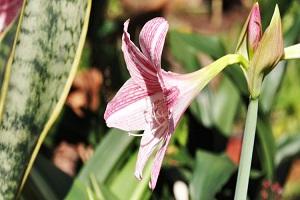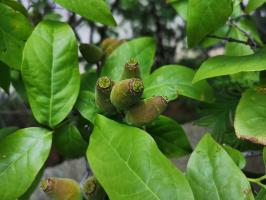Introduction
Plants need water to grow, but not all water is created equal. Tap water found in many households is typically treated with chemicals that may harm plants. As such, using tap water for watering plants may not be the best idea. In this article, we will explore why tap water is not recommended for watering plants.
Chemicals in Tap Water
One reason why tap water is not recommended for watering plants is the presence of chemicals. Tap water often contains chlorine and fluoride that are commonly added to disinfect the water and prevent tooth decay respectively. However, these chemicals can harm plants as they can only tolerate low levels of chlorine and fluoride. In addition, tap water can also contain trace amounts of heavy metals, such as lead and copper, that can accumulate in soil and harm plant roots.
Hardness of Tap Water
Tap water can also be hard, meaning it contains high levels of minerals such as calcium and magnesium. While these minerals are not necessarily harmful to plants, they can cause problems for plants that prefer acidic soil. Hard water can cause the soil's pH level to rise, making it less acidic and less hospitable for some plants. In addition, hard water can also leave behind deposits on plants and pots, which can impede their growth and even lead to plant death.
Lack of Nutrients
Tap water may also lack the necessary nutrients that plants need for healthy growth. While tap water contains some minerals, such as iron and zinc, they are typically found in low concentrations. Furthermore, tap water does not contain many of the micronutrients that plants need, such as boron, manganese, and molybdenum. In addition, some tap water may be treated with water softeners, which removes magnesium and calcium ions that are beneficial for plant growth.
Alternatives to Tap Water
If tap water is not recommended for watering plants, what are the alternatives? One option is rainwater, which is naturally soft and free of chemicals. Rainwater also contains more of the nutrients that plants need, such as nitrogen and phosphorus. Another option is filtered water, which can eliminate the harmful chemicals and minerals found in tap water. Alternatively, well water from a trusted source can be a safe and effective option for watering plants.
Conclusion
In conclusion, tap water is not recommended for watering plants because it may contain harmful chemicals, contribute to soil alkalinity, and lack the necessary nutrients for healthy growth. While alternatives such as rainwater or filtered water may require more effort, they can ultimately lead to better plant growth and health.

 how many times do yo...
how many times do yo... how many planted tre...
how many planted tre... how many pine trees ...
how many pine trees ... how many pecan trees...
how many pecan trees... how many plants comp...
how many plants comp... how many plants can ...
how many plants can ... how many plants and ...
how many plants and ... how many pepper plan...
how many pepper plan...































